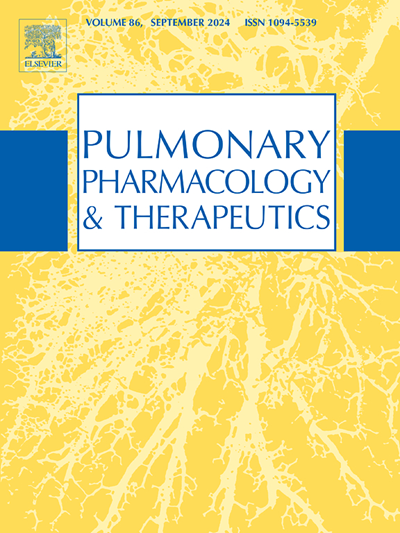多种生物制剂的时代:联合和转换是治疗严重哮喘的一种选择吗?
IF 2.8
3区 医学
Q2 PHARMACOLOGY & PHARMACY
引用次数: 0
摘要
背景与目的:针对哮喘病理生理相关的特定细胞因子的生物制剂疗法的引入已经改变了成人和儿童重度哮喘治疗的格局。然而,多种药物的可用性、随机对照试验(rct)的纳入标准、国家和国际指南的变化、治疗失败的实例以及切换或联合生物治疗的潜力,都突出了对真实证据的需求。来自生物制剂治疗严重哮喘的实际研究数据可以补充随机对照试验获得的疗效数据,并提供重要的上市后安全性信息。此外,这些研究可能有助于为未来临床试验的设计提供信息,描述疾病的自然历史,并支持重要的转化研究。这篇综述强调了目前在严重哮喘和合并症疾病中联合和转换生物制剂的证据,这些证据可能作为最佳临床结果的指针。方法:采用指定的检索策略对Pubmed、Scopus和Web of Science进行检索。结果:现有证据表明,在现实环境中接受联合或转换生物制剂(omalizumab, benralizumab, reslizumab, mepolizumab, dupilumab和Tezepelumab)的严重哮喘患者在哮喘控制,恶化和肺功能方面有显着改善。虽然联合生物制剂目前还不是一种常见的做法,但也有联合、停止或切换生物疗法的情况。结论:在重症哮喘患者早期系统考虑联合和切换生物治疗可能会受益。本文章由计算机程序翻译,如有差异,请以英文原文为准。
The era of multiple biologics: Is combination and switching an option in the management of severe asthma?
Background and objective
The introduction of biologics therapies targeting specific cytokines relevant to asthma pathophysiology has changed the landscape in the treatment of severe asthma in both adults and children. However, the availability of multiple agents, inclusion criteria for randomised control trials (RCTs), variation in national and international guidelines, instances of treatment failures, and the potential of switching or combining biologic therapies, highlight the need for real-world evidence. Data from real-world studies of biologics in severe asthma may complement efficacy data obtained from RCTs and provide important post-marketing safety information. Additionally, these studies may help inform the design of future clinical trials, characterise the natural history of the disease, and support important translational research. This review highlights current evidence for the combination and switching of biologics in severe asthma and comorbid diseases that may serve as pointers for optimal clinical outcomes.
Method
Pubmed, Scopus, and Web of Science were searched using specified search strategies.
Results
Available evidence suggests that patients with severe asthma who received combination or switched biologics (omalizumab, benralizumab, reslizumab, mepolizumab, dupilumab, and Tezepelumab) in real-world settings experienced significant improvement in asthma control, exacerbation, and lung function. Although combining biologics is not currently a common practice, there are cases where biologic therapies were combined, discontinued, or switched.
Conclusion
Patients may benefit from the early and systematic consideration of combination and switching of biologic therapies in severe asthma.
求助全文
通过发布文献求助,成功后即可免费获取论文全文。
去求助
来源期刊
CiteScore
6.20
自引率
0.00%
发文量
41
审稿时长
42 days
期刊介绍:
Pulmonary Pharmacology and Therapeutics (formerly Pulmonary Pharmacology) is concerned with lung pharmacology from molecular to clinical aspects. The subject matter encompasses the major diseases of the lung including asthma, cystic fibrosis, pulmonary circulation, ARDS, carcinoma, bronchitis, emphysema and drug delivery. Laboratory and clinical research on man and animals will be considered including studies related to chemotherapy of cancer, tuberculosis and infection. In addition to original research papers the journal will include review articles and book reviews.
Research Areas Include:
• All major diseases of the lung
• Physiology
• Pathology
• Drug delivery
• Metabolism
• Pulmonary Toxicology.

 求助内容:
求助内容: 应助结果提醒方式:
应助结果提醒方式:


